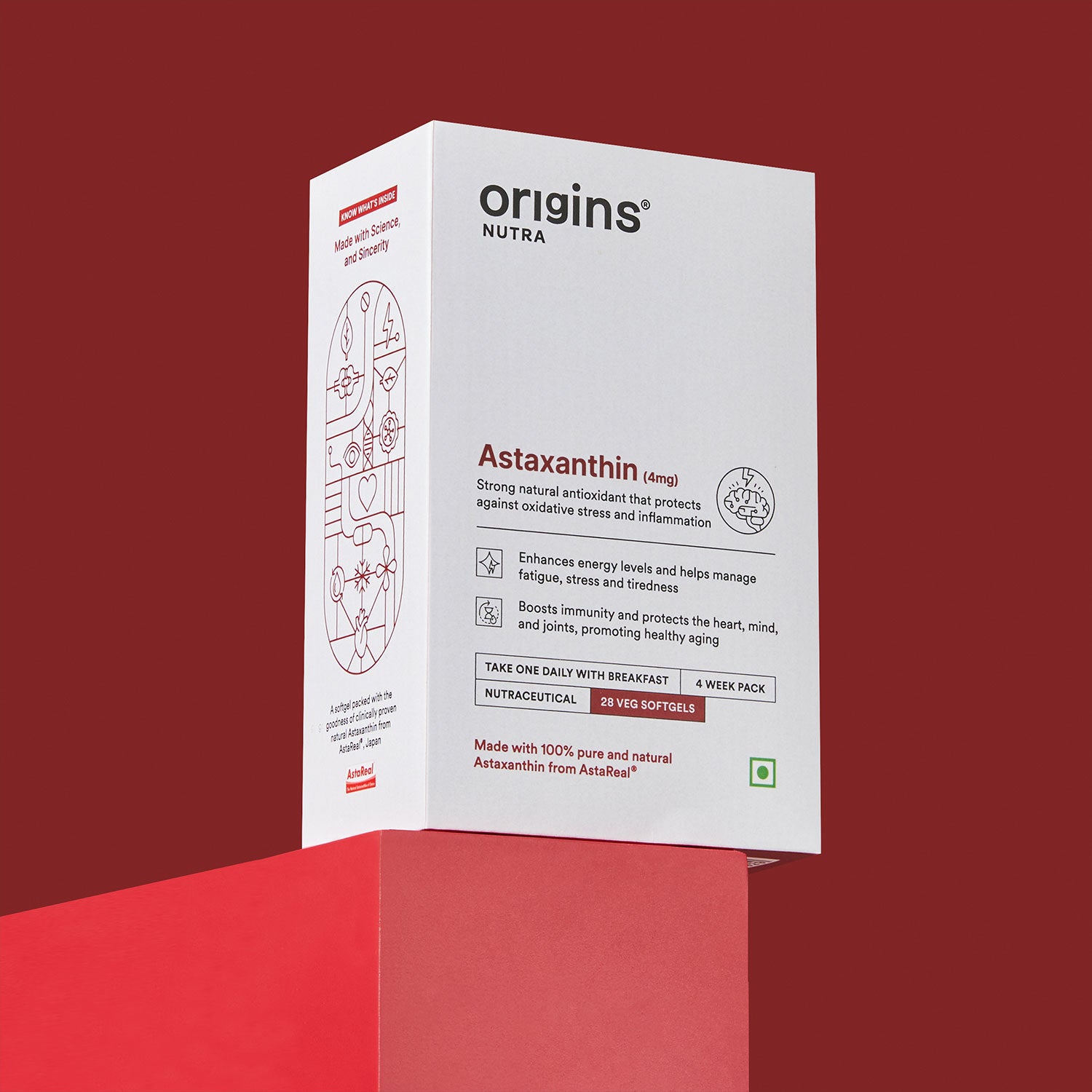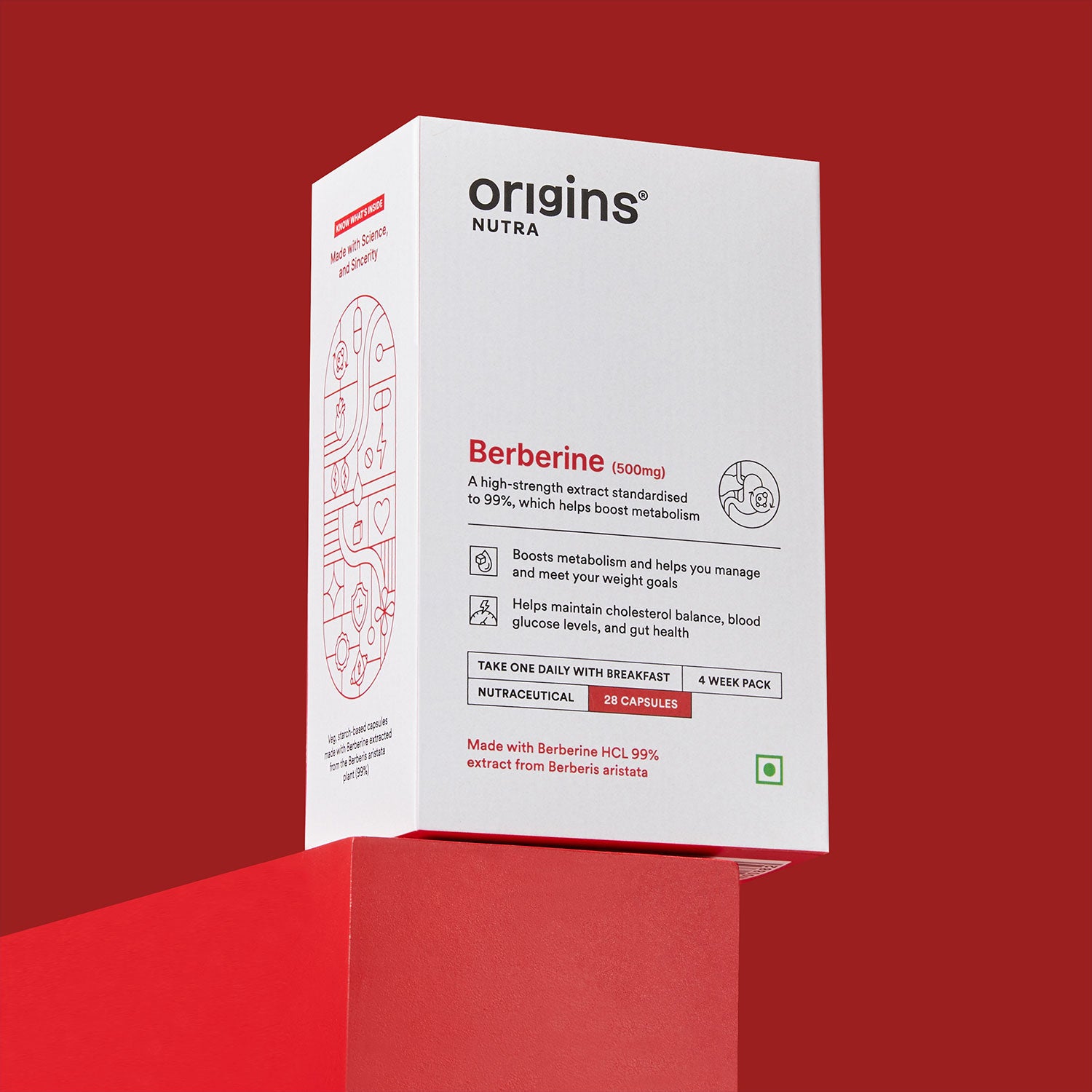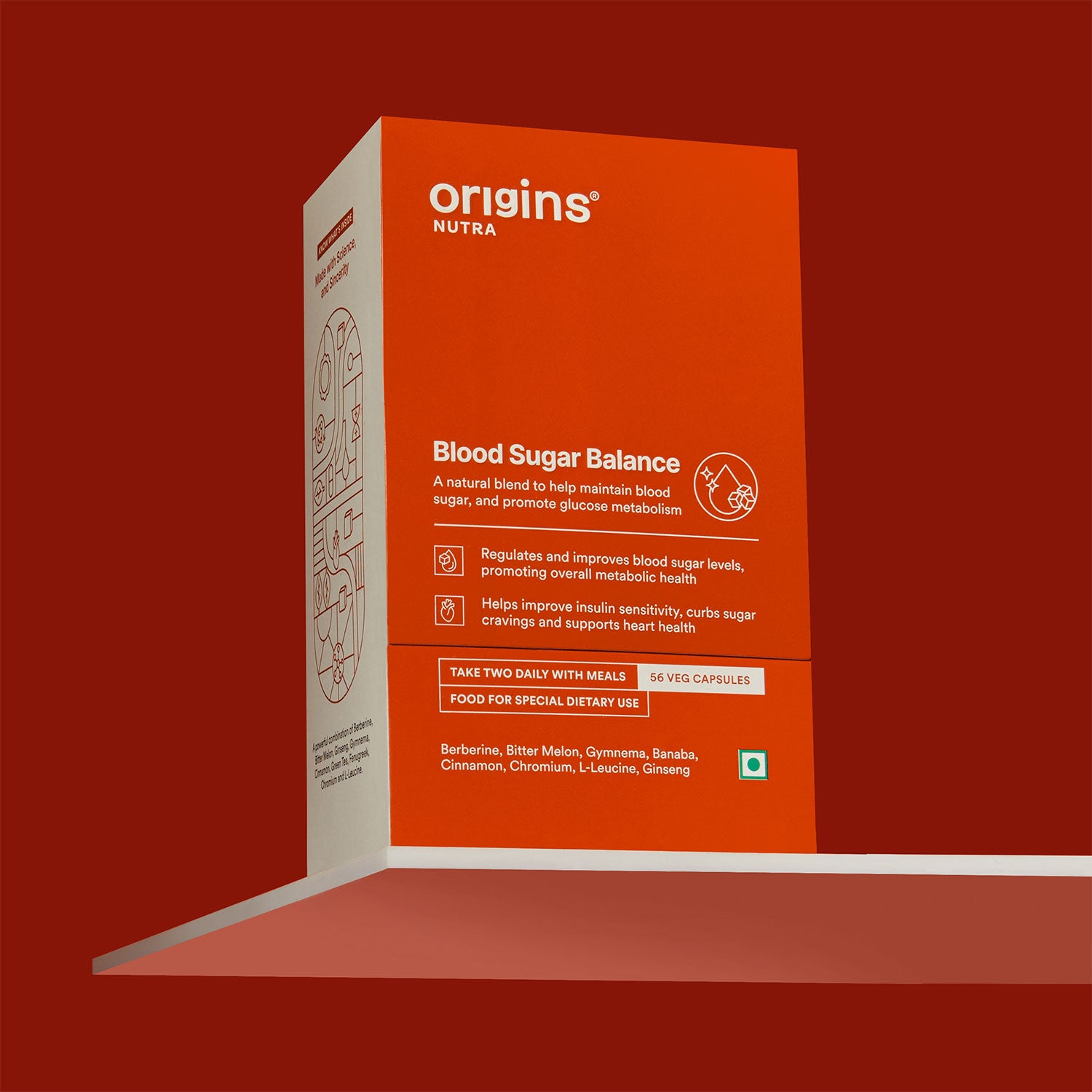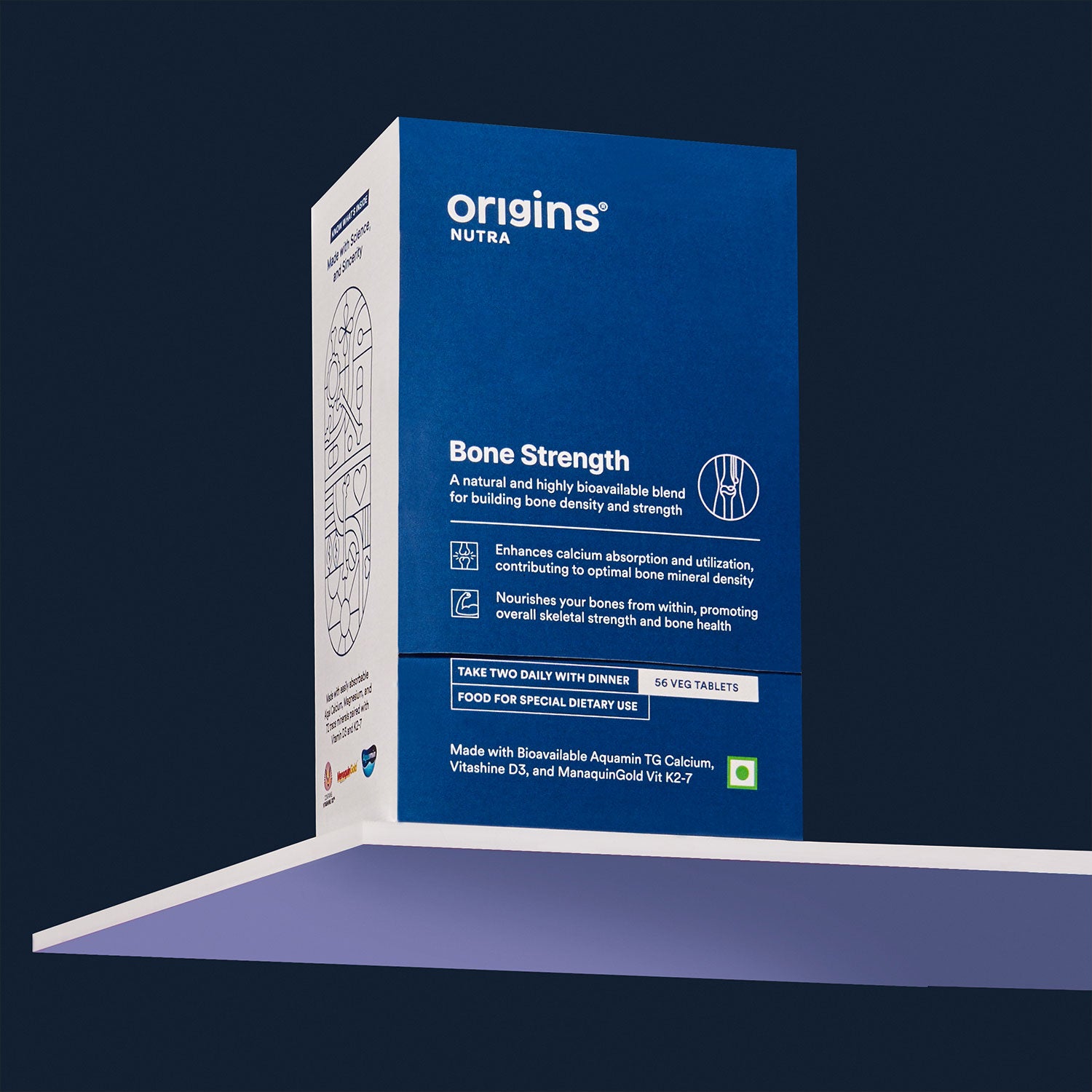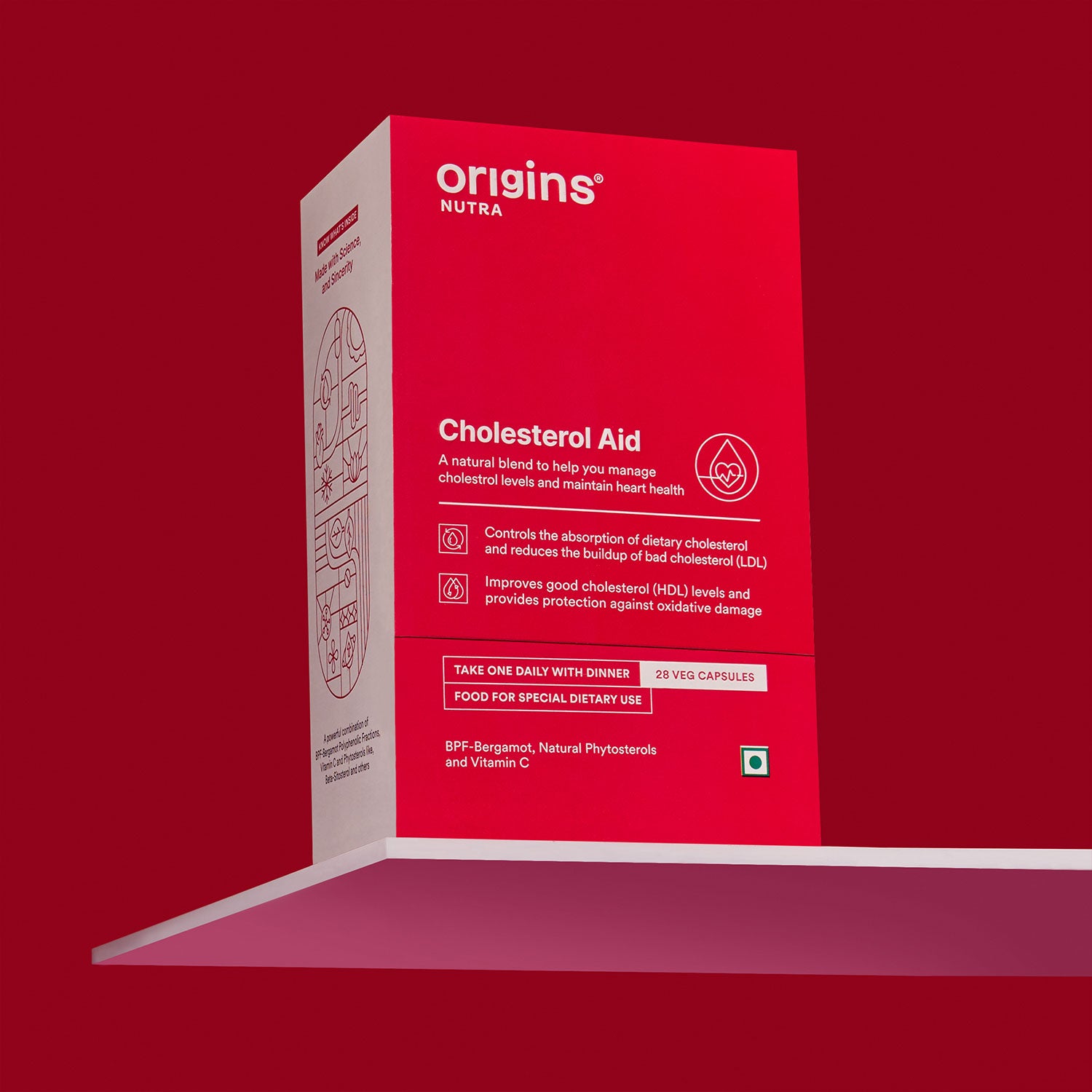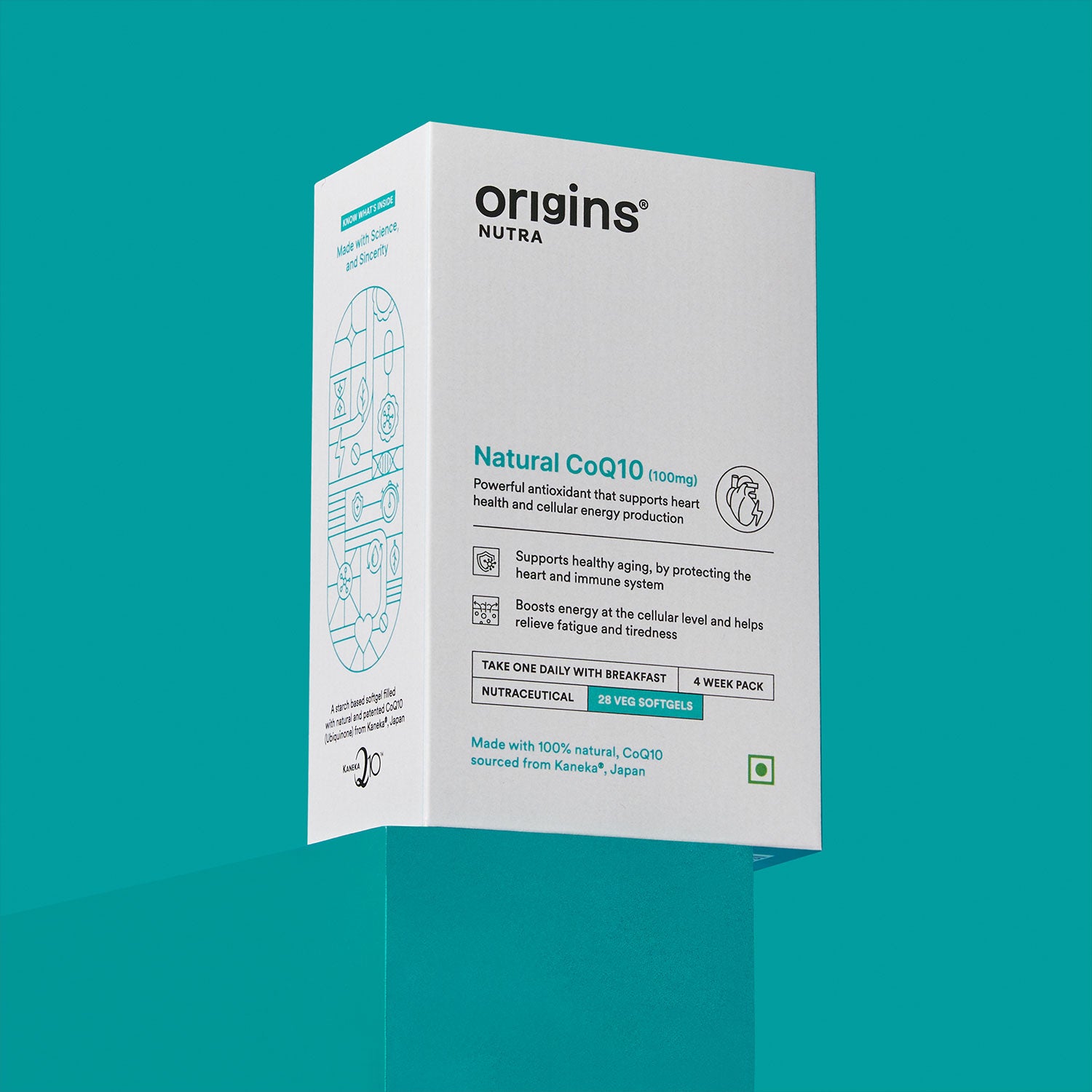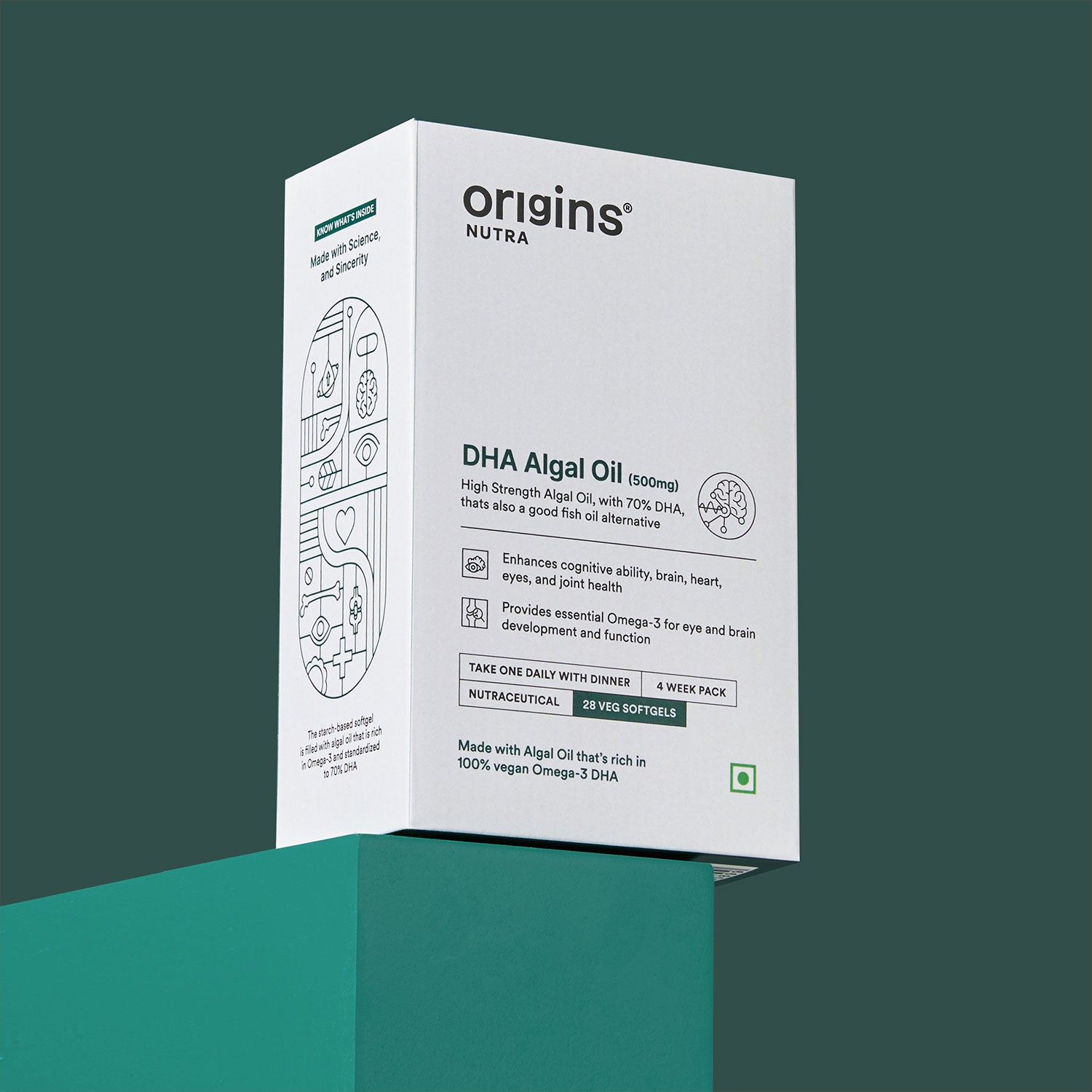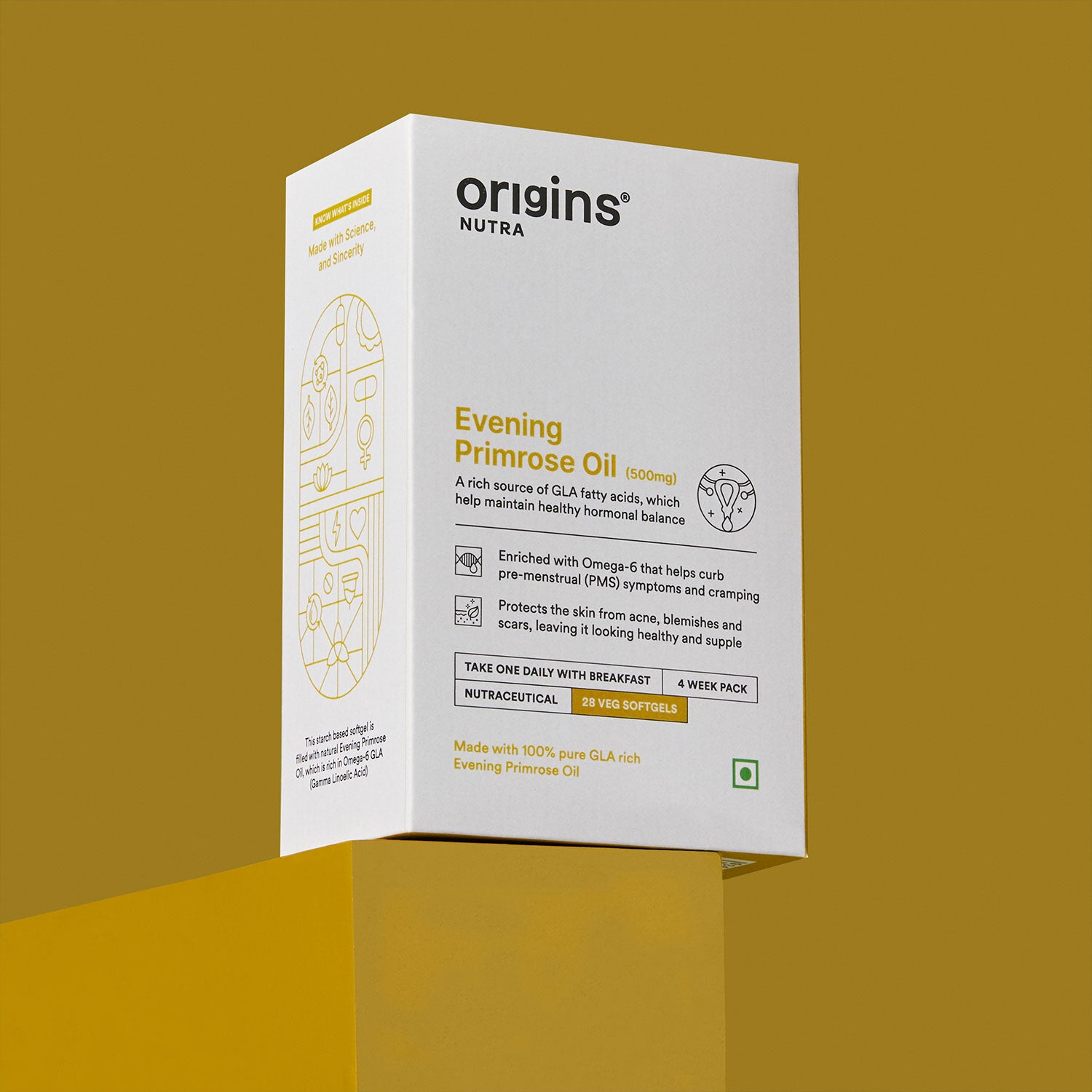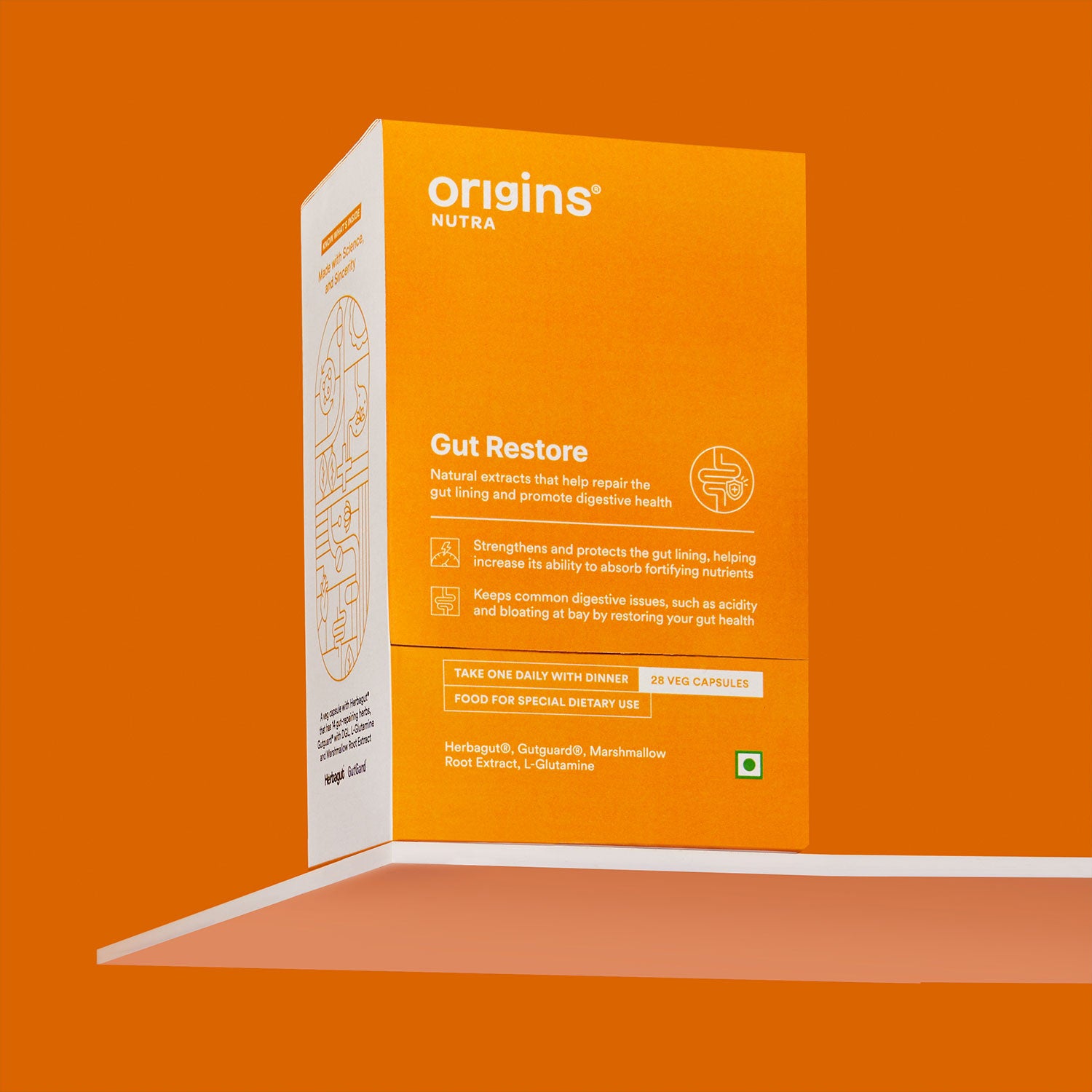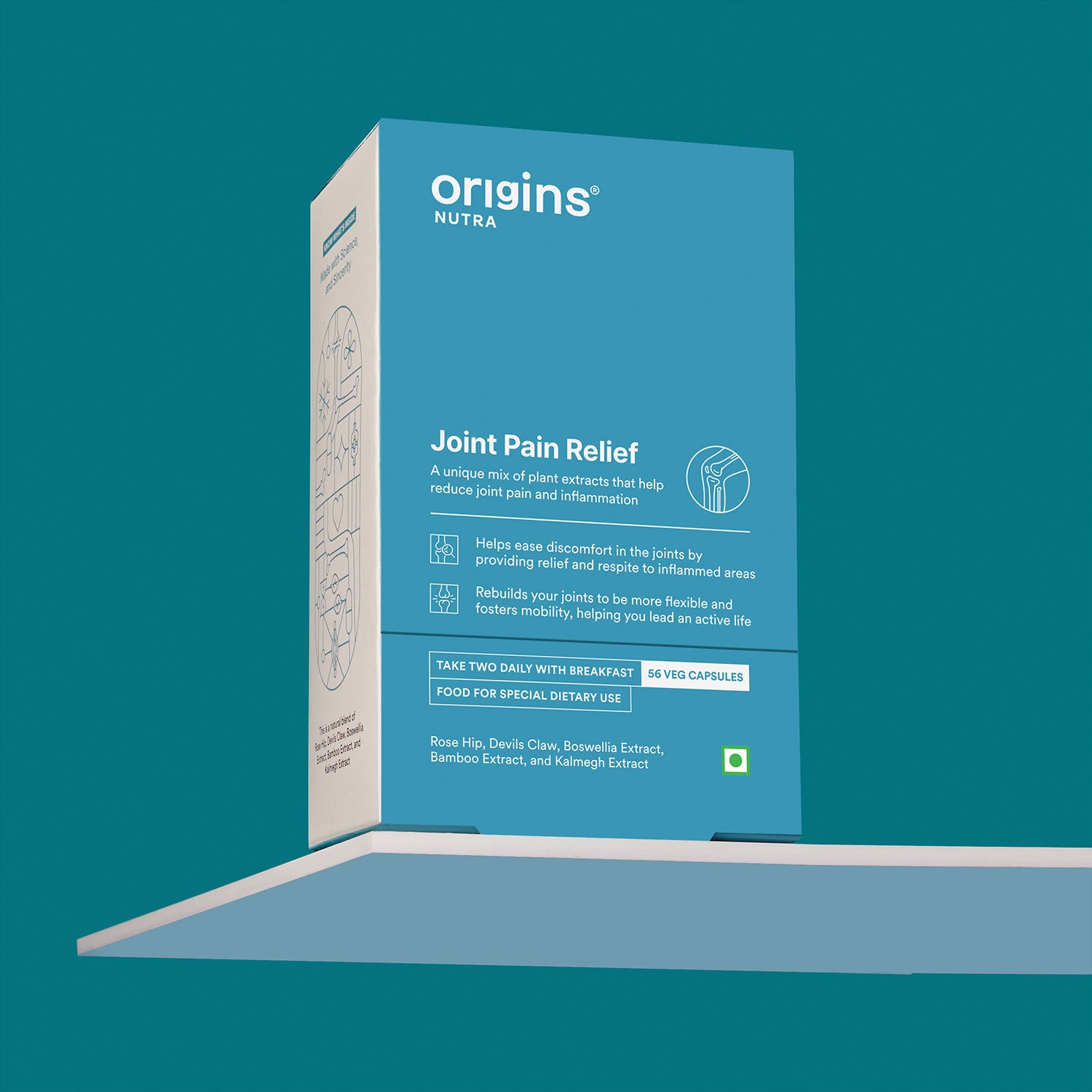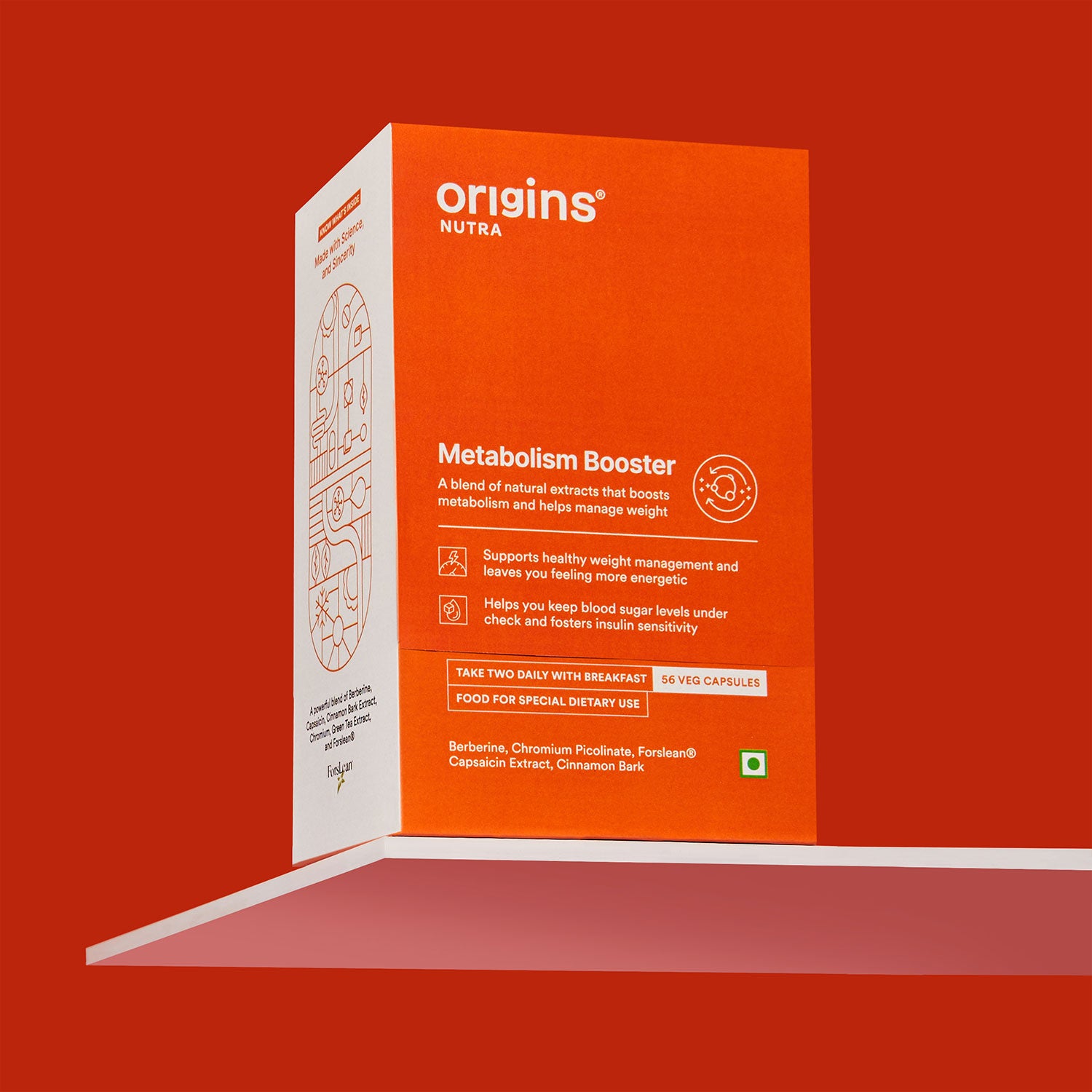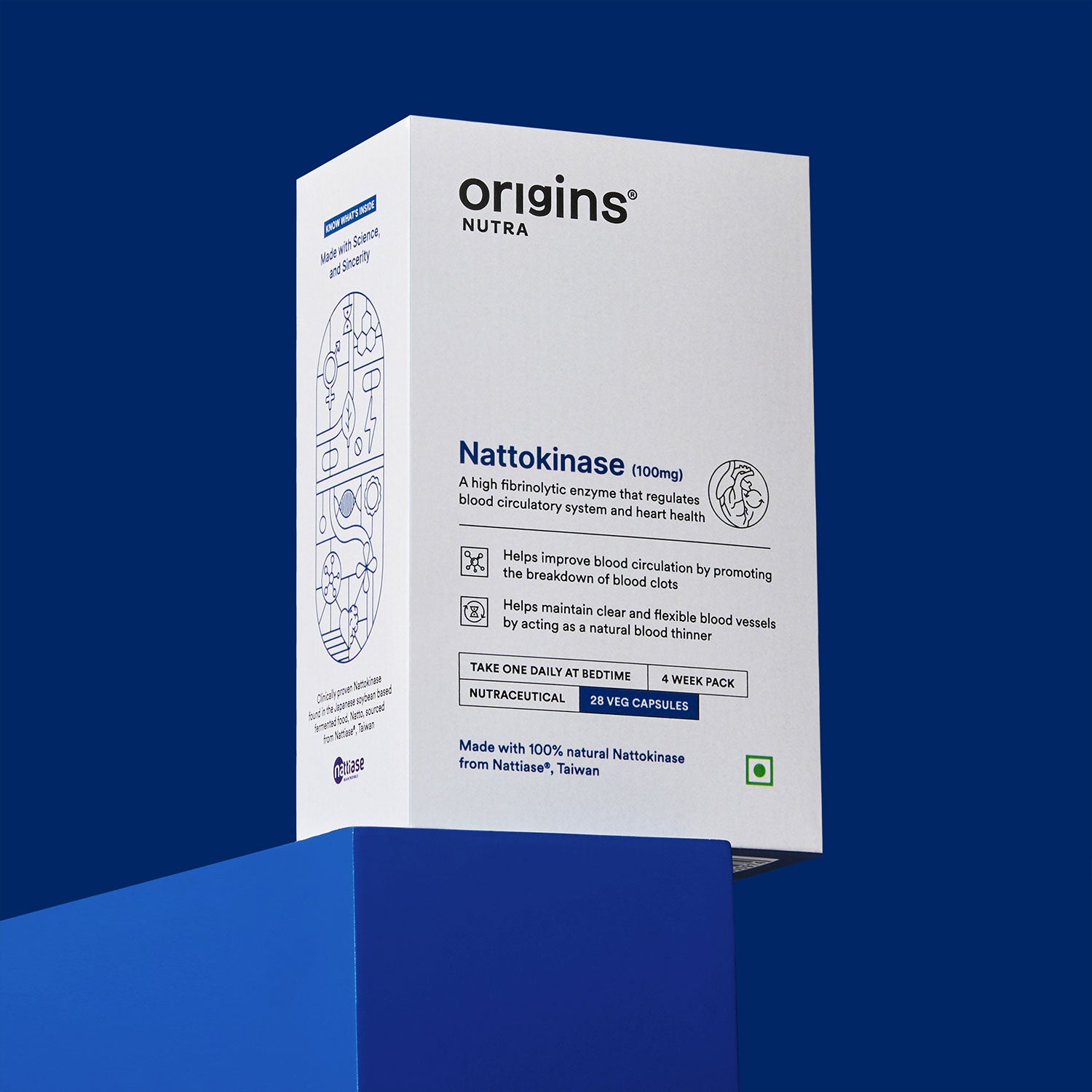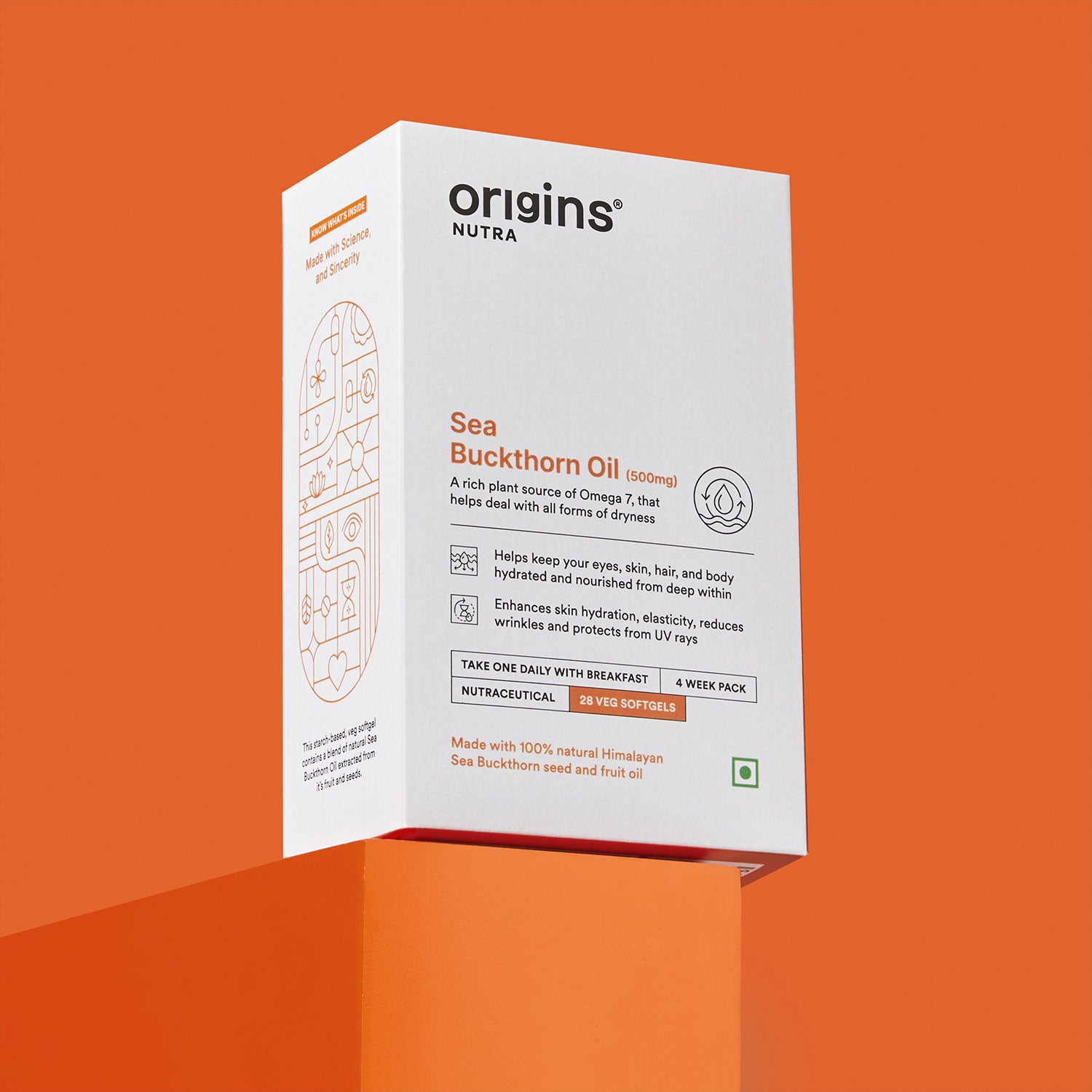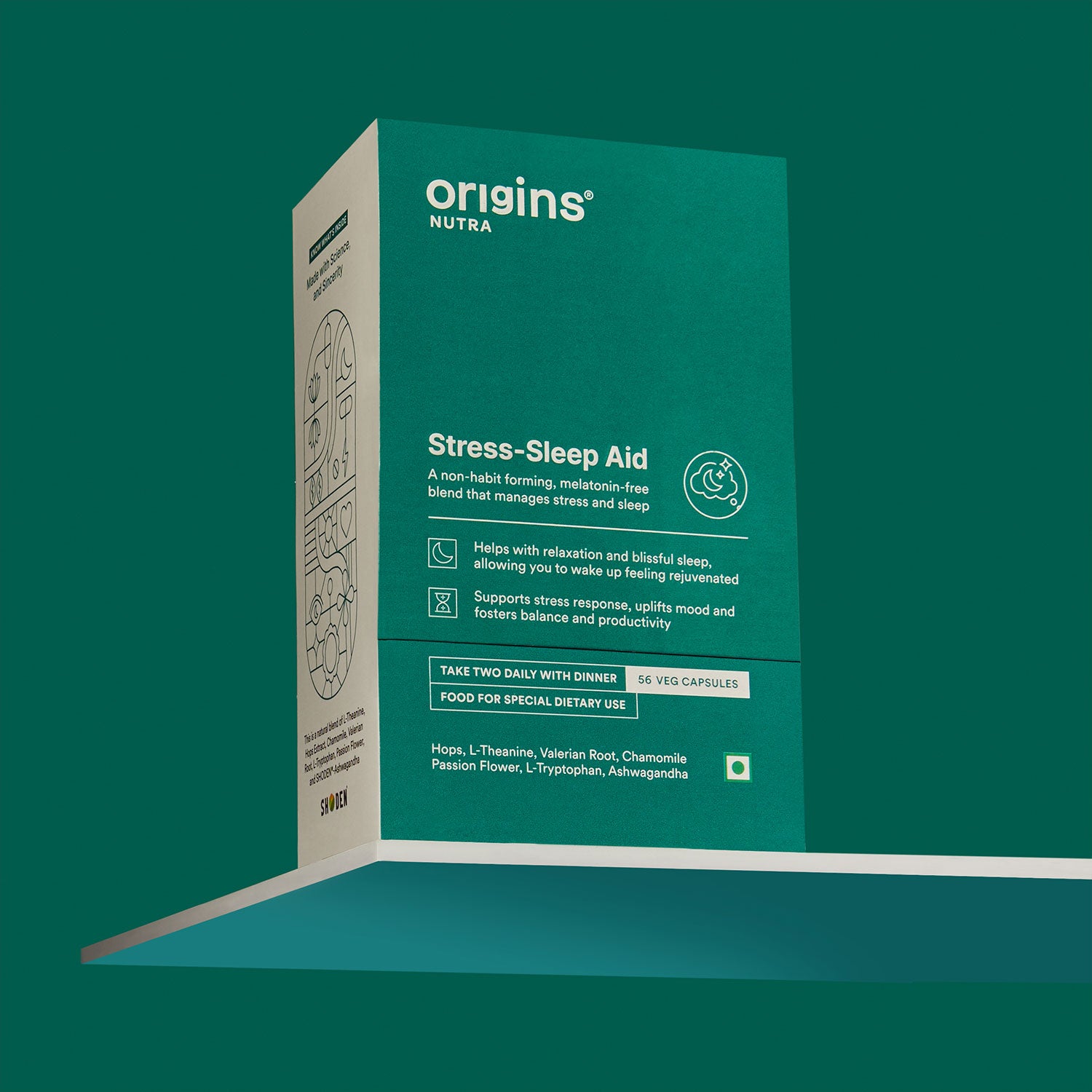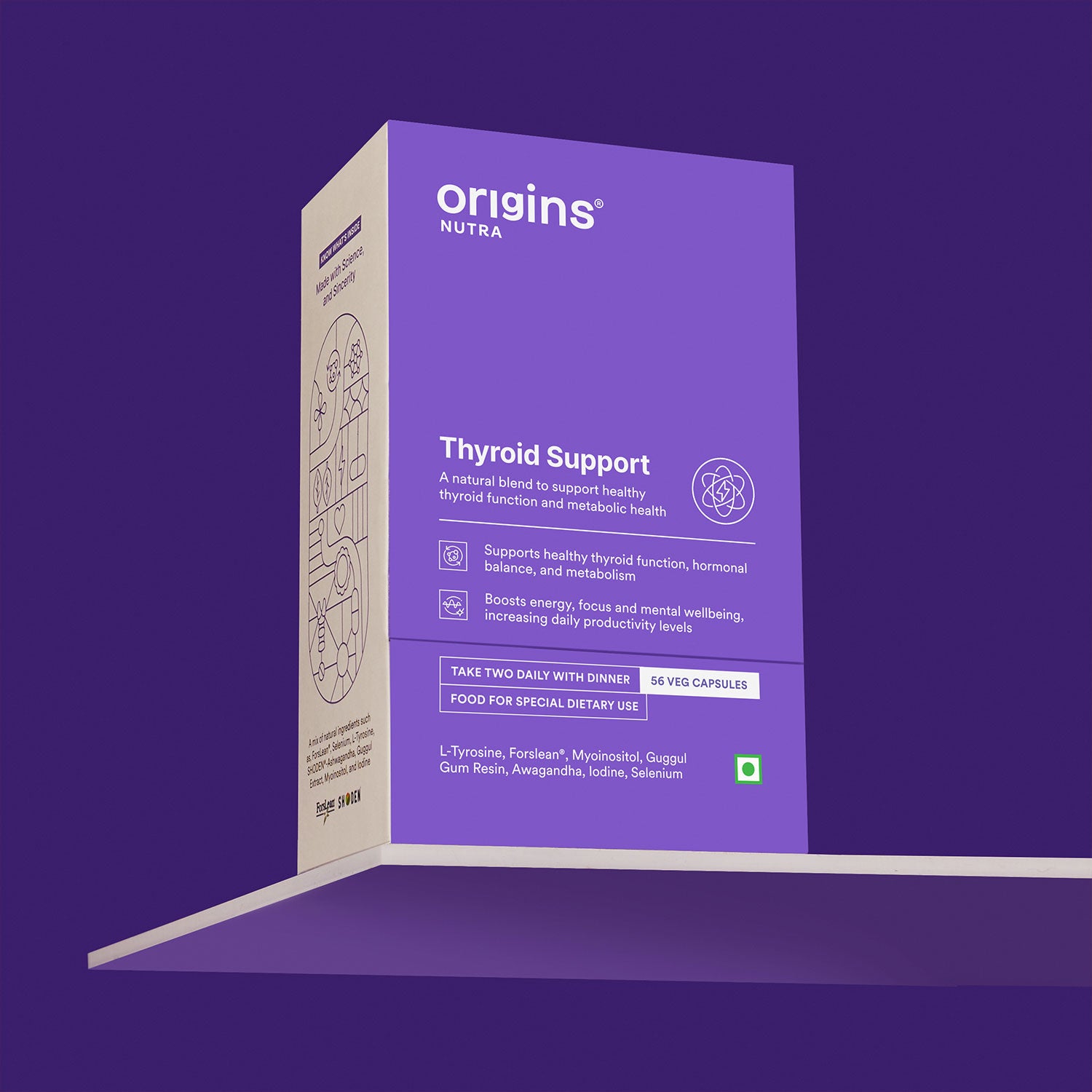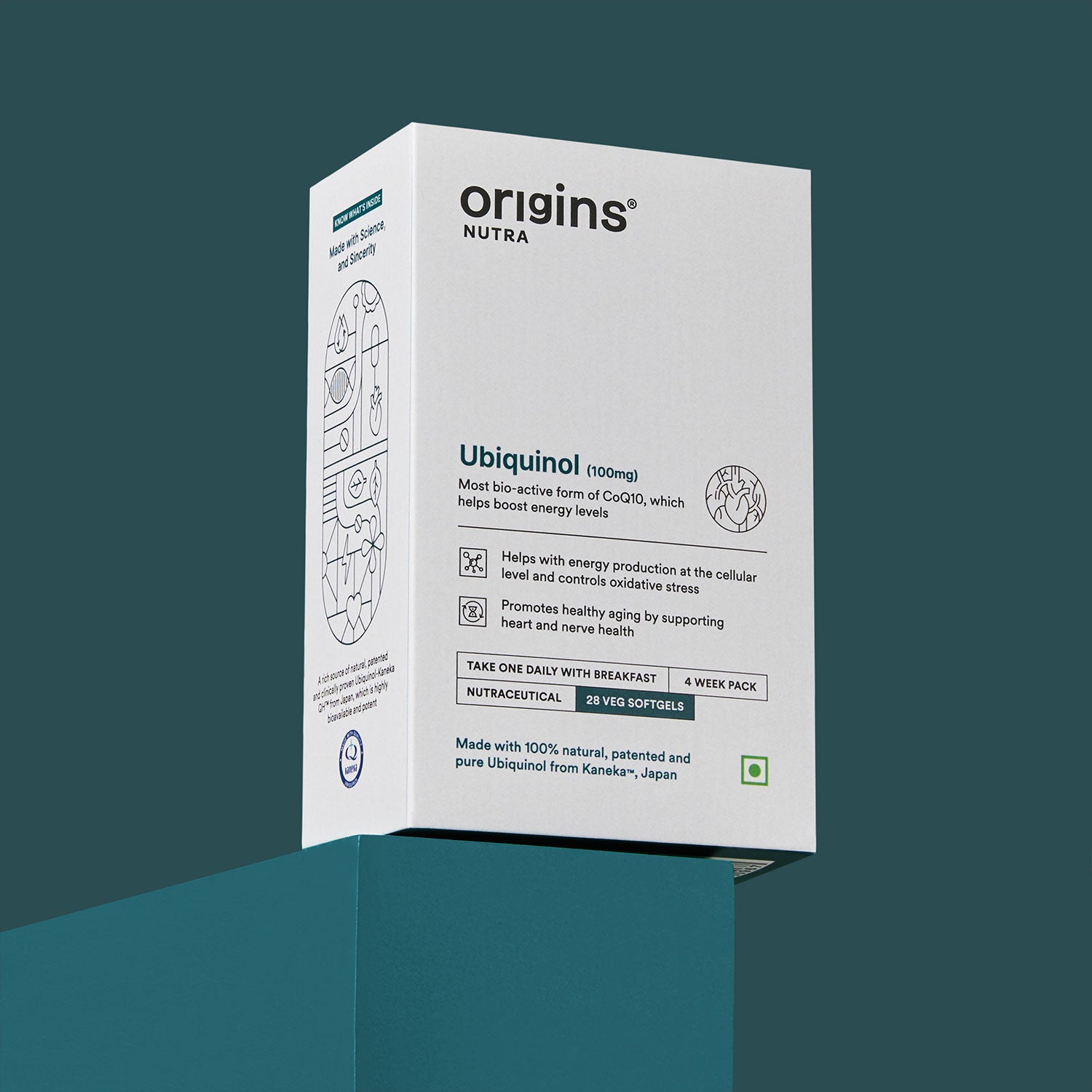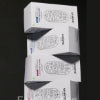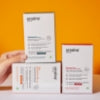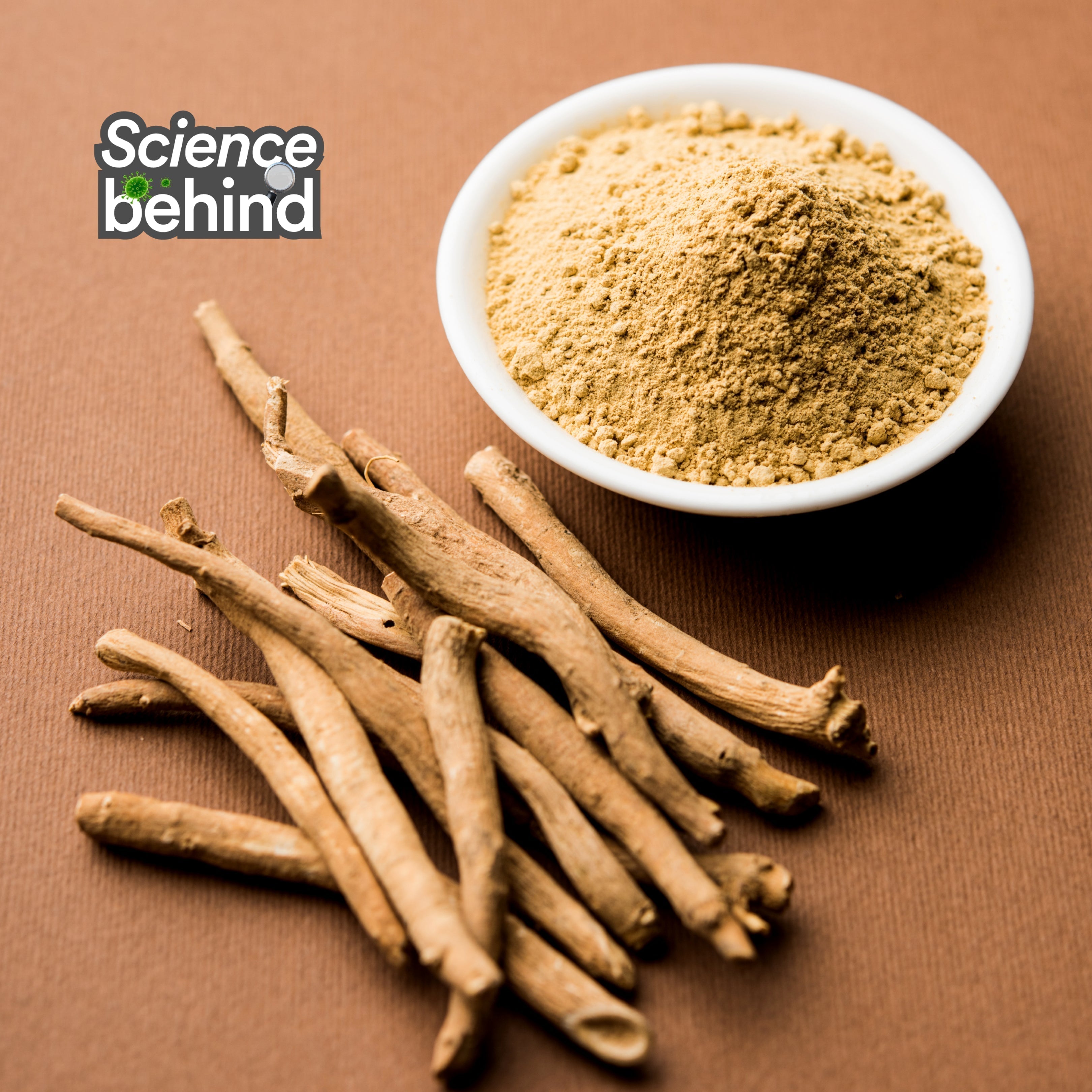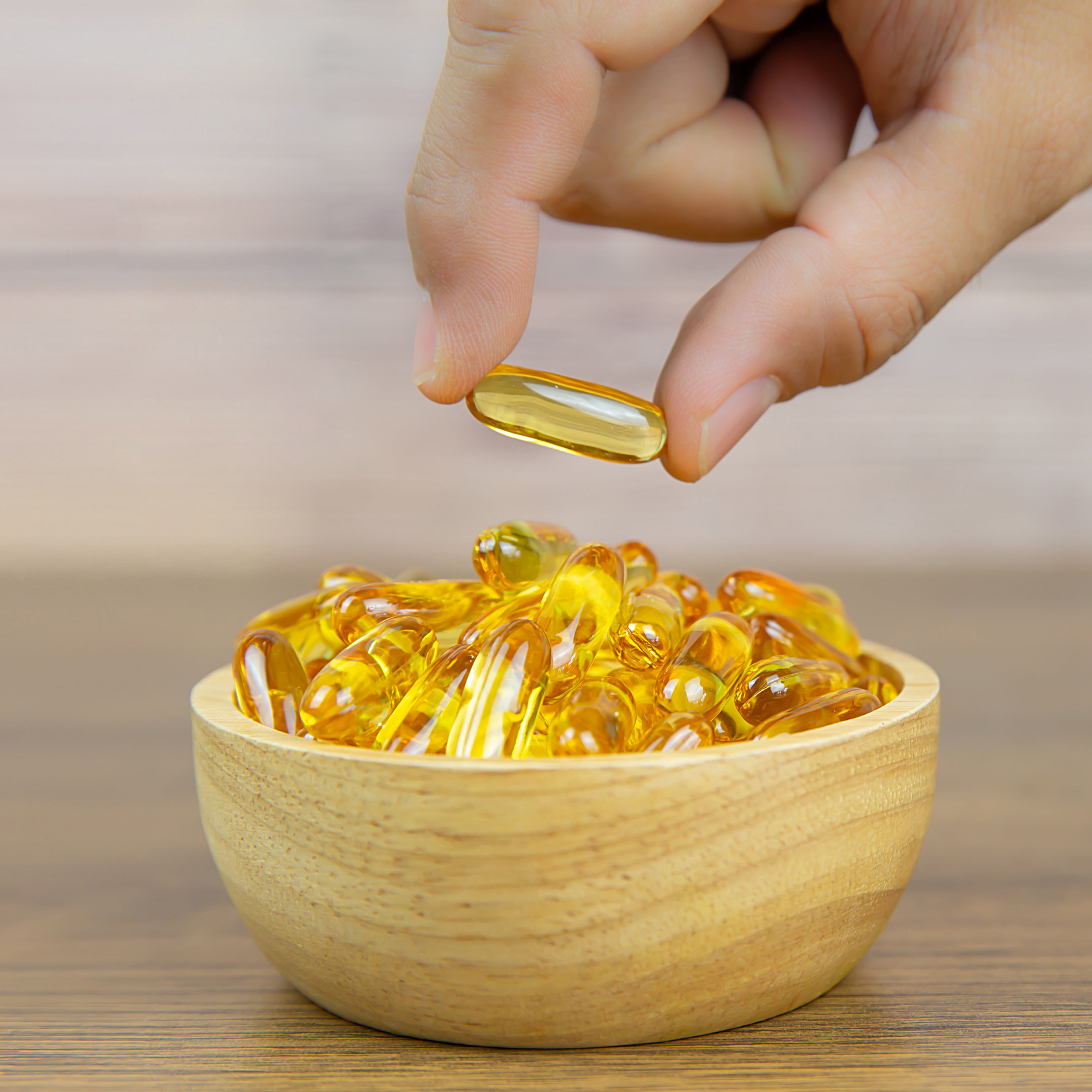Thyroid Support: Solution for Optimal Thyroid Function
- Introduction
- Understanding the Problem
- Root Cause Analysis
- Product Overview
- Detailed Ingredients view
- Branded Ingredients
- Synergistic effect of formulation
- Research and clinical studies
- Dosage
- Conclusion
- References
Introduction:
In today's hectic lifestyle, thyroid dysfunction has become increasingly prevalent. Factors such as stress, nutrient-poor diets, and environmental pollutants and other lifestyle disorders contribute to thyroid imbalances, leading to issues like hypothyroidism and hyperthyroidism. These conditions not only impact physical health but also affect mood, cognition, and overall quality of life. Therefore, prioritising thyroid health is essential to address underlying imbalances and promote holistic well-being.
By supporting thyroid function with our Thyroid Support, individuals can effectively address underlying deficiencies and promote optimal metabolic function, sustained energy levels, and overall wellness. Prioritising thyroid health empowers individuals to take control of their well-being and thrive in today's dynamic world.
Understanding the Problem
Thyroid diseases rank among the most prevalent endocrine disorders globally, and India is no exception, with an estimated 42 million individuals affected.
Among Indian adults, recent studies in Cochin revealed a prevalence of 3.9% for hypothyroidism, with an additional 9.4% exhibiting subclinical hypothyroidism (lacking obvious signs but detectable through medical tests). Women were disproportionately affected, with a prevalence of 11.4% compared to 6.2% in men. Subclinical hypothyroidism rates increased with age, with over half of affected individuals testing positive for anti-thyroid peroxidase antibodies (tests to know if thyroid disease is an autoimmune disorder.
Despite iodine sufficiency in sampled populations, thyroid disorder incidences continue to rise globally due to environmental and lifestyle factors. These statistics underscore the urgent need for effective thyroid support supplements.
Root Cause Analysis:

- Genetics: It can significantly influence thyroid dysfunction, with family history serving as a key indicator of potential thyroid issues.
- Autoimmune Diseases: Autoimmune thyroid diseases, such as Hashimoto's and Graves' disease, result from the immune system mistakenly attacking the thyroid gland. Hashimoto's leads to an underactive thyroid, while Graves' disease causes hyperthyroidism.
- Nutrient Deficiencies: Particularly in iodine, selenium, zinc, iron, magnesium, and vitamin D, can disrupt thyroid function.
- Stress or Trauma: Chronic stress or traumatic events can impact thyroid function by disrupting hormonal balance and increasing cortisol levels.
- Chronic Inflammation: Prolonged inflammation, linked to conditions like leaky gut syndrome, can exacerbate thyroid autoimmune disorders.
Product Overview
Origin's Thyroid Support is a natural blend to support healthy thyroid function and metabolic health thyroid support. Unlike traditional supplements that focus on single aspects, our formula takes a holistic approach, blending synergistic nutrients in convenient capsule form.

From promoting hormonal balance and supporting metabolism to aiding stress response and offering antioxidant protection, our supplement takes a comprehensive approach to ensure lasting benefits and overall well-being. This unique strategy makes our supplement a trusted choice for those seeking holistic thyroid health support.
Detailed Ingredient Analysis
1. L-Tyrosine:
Thyroid hormones are made in the follicles of the thyroid gland. Here, iodine from the blood combines with an amino acid called L-tyrosine to create thyroid hormones. Special enzymes, like thyroid peroxidase, help out by adding iodine to tyrosine, forming compounds known as monoiodotyrosine (MIT) and diiodotyrosine (DIT). These compounds eventually come together to make thyroid hormones like triiodothyronine (T3) and thyroxine (T4). L-tyrosine plays a critical role in this process and is often found in supplements that support thyroid health.
2) Iodine:
Proper thyroid function relies on dietary iodine, a crucial element in thyroid hormones. Iodine, found in the blood, combines with an amino acid called L-tyrosine to produce these essential hormones. Severe iodine deficiency during pregnancy can result in severe neurocognitive problems in infants and higher mortality rates. While iodine deficiency has been largely resolved through standard salt and vegetable oil supplementation, individuals on low-sodium diets may require extra iodine from sources like sea vegetables.

3) Selenium:
A sufficient intake of selenium is vital for thyroid function, as it aids in converting inactive T4 into active T3 through selenium-dependent enzymes. Correcting selenium deficiency may help improve thyroid dysfunction, with some studies suggesting that selenium supplementation can lower thyroid antibodies and improve mood in those with autoimmune thyroiditis. However, caution is necessary as selenium can worsen thyroid function in cases of iodine deficiency, necessitating supplementation of selenium and iodine together.
4) Guggul Gum Resin Extract:
Guggul gum resin extract, sourced from the Commiphora mukul tree and standardised to contain 2.5% guggulsterone, is gaining attention for its potential to improve thyroid function. Studies have demonstrated that administering an ethanolic extract of guggulu can elevate levels of triiodothyronine (T3) and the T3/T4 ratio. One of its key components, Z-Guggulsterone, has been identified as the agent responsible for enhancing thyroid function. It achieves this by increasing iodine uptake by the thyroid and enhancing the activity of enzymes involved in thyroid hormone production, ultimately boosting thyroid activity.

5) ForsLean (Coleus Forskohlii Extract) Standardised to 10% of Forskolin:
Both Forskolin and TSH (thyroid-stimulating hormone) play roles in increasing the release of T4 and T3 thyroid hormones. However, Forskolin leads to a faster and more substantial increase in hormone secretion compared to TSH. These results imply that the initial steps of the process, such as how TSH interacts with its receptor and activates adenylate cyclase (converts energy into intracellular second messenger) affect the release of thyroid hormones during TSH stimulation. Forskolin demonstrates similar effects on the secretion of T3 and T4 compared to cAMP (cyclic adenosine monophosphate) and TSH, indicating its potential to enhance the release of thyroid hormones.
6) Myoinositol:
Myo-inositol (MYO), a type of inositol, plays a crucial role in thyroid function. Research suggests that individuals with thyroid issues may require more MYO than those with normal thyroid function. MYO is essential for producing hydrogen peroxide (H2O2), which is necessary for synthesising thyroid hormones. Consequently, a depletion of MYO or dysfunction in the inositol-dependent TSH signalling pathway could contribute to the development of thyroid diseases, such as hypothyroidism.
Clinical studies have demonstrated that treatment with MYO combined with Selenium (MYO+Se) can lead to significant decreases in TSH levels in patients with subclinical hypothyroidism. Problems with MYO levels or the inositol-dependent TSH signalling pathway may lead to thyroid issues like hypothyroidism. MYO also plays a role in restoring normal thyroid activity and preventing the progression of hypothyroidism. These findings underscore the importance of MYO in maintaining thyroid health, ensuring adequate iodine levels, and preventing thyroid disorders.
7) Shoden (Ashwagandha) Standardised to 35% of Withanolides:

Chronic stress can lead to higher levels of cortisol, a hormone that, in excess, may lower the levels of triiodothyronine (T3) and thyroxine (T4), which are crucial thyroid hormones. Ashwagandha, seems to regulate the endocrine system by reducing cortisol levels. A study conducted over eight weeks showed that individuals treated with ashwagandha experienced significant improvements in serum levels of thyroid-stimulating hormone (TSH), T3, and T4 compared to those who received a placebo. This suggests that ashwagandha may play a beneficial role in normalising thyroid function, particularly in individuals with subclinical hypothyroidism.
Branded Ingredients
Our thyroid support product features Shoden®, a meticulously crafted ingredient derived from the Ashwagandha plant. Through a specialised process, Shoden® ensures the enrichment and optimization of the full spectrum of Withanolide Glycosides, the bio-active component in Ashwagandha, to an unparalleled level of 35%. This exceptional composition sets Shoden® apart from other Ashwagandha root extracts available in the market, making it the most potent extract globally. Even at low doses, Shoden® guarantees activity, thanks to its industry-leading purity and potency. Supported by extensive clinical studies, Shoden® stands as a clinically-tested and purified extract, providing unmatched quality and efficacy, making an invaluable addition to our thyroid support formula.

Synergistic Effects and Formulation
Synergistic effects in formulations occur when multiple ingredients collaborate to amplify each other's efficacy, creating a more potent effect than any individual component alone. In thyroid health supplements, this synergy is achieved by thoughtfully combining ingredients that address various aspects of thyroid function.
For example in thyroid support:
- L-Tyrosine, iodine, and selenium: L-Tyrosine is essential for the synthesis of thyroid hormones, while iodine and selenium are crucial components for thyroid hormone production and conversion. Together, these nutrients support optimal thyroid function by addressing various stages of hormone synthesis and metabolism.
- Guggul Gum Resin Extract and ForsLean: Both ingredients have been shown to enhance thyroid function through different mechanisms. Guggul gum resin extract increases iodine uptake by the thyroid and enhances enzyme activity involved in hormone production, while ForsLean stimulates hormone release. Combining these ingredients may result in a more balanced and comprehensive approach to supporting thyroid health.
- Myoinositol and Selenium :Clinical studies have demonstrated that treatment with myoinositol combined with selenium can lead to significant decreases in TSH levels in patients with subclinical hypothyroidism.
Scientific Research and Clinical Studies
Recent studies have explored the impact of MYO treatment in larger patient cohorts. In one clinical trial, 86 individuals with Subclinical hypothyroidism and Hashimoto thyroiditis received 600 mg MYO and 83 µg Se daily for 6 months, resulting in a significant reduction in TSH levels. Moreover, these patients reported notable improvements in their quality of life based on the cause and severity of symptoms.
Another study involving 168 participants diagnosed with Hashimoto thyroiditis and TSH levels between 3 and 6 mIU/mL divided them into two groups: one treated with MYO+Se (600 mg + 83 µg) and the other with Se alone (83 µg). The MYO+Se group exhibited significant enhancements in thyroid parameters compared to the Se-only group. Administered twice daily, this combined treatment effectively reduced TSH levels and the risk of developing Subclinical hypothyroidism.
Additionally, a 2018 study demonstrated the safety and efficacy of MYO+Se supplementation in pregnant women with TSH levels between 1.6-2.5 µIU/ml. These patients received 600 mg MYO plus 83 µg Se daily from the first to third trimester, resulting in the prevention of Subclinical hypothyroidism development and stabilisation of TSH, free T3, and free T4 levels.
In a study investigating Ashwagandha root extract (600 mg daily), participants underwent eight weeks of treatment, resulting in significant improvements in serum TSH, T3, and T4 levels compared to the placebo group. Ashwagandha treatment effectively normalised the serum thyroid indices over the 8-week treatment period in a notable manner.
Benefits and Efficacy
Using thyroid support offers several benefits and can be highly effective in promoting thyroid health. These supplements typically contain ingredients such as L-tyrosine, iodine, selenium, guggul gum resin extract, forskolin, myoinositol, and ashwagandha, which are known for their roles in supporting thyroid function.

- Balanced thyroid hormone production: Ingredients like L-tyrosine, iodine, and selenium are essential for the synthesis of thyroid hormones, including triiodothyronine (T3) and thyroxine (T4). Supplementing with these nutrients ensures adequate levels for optimal thyroid function.
- Improved thyroid function: Components like guggul gum resin extract and forskolin have been shown to enhance thyroid function by increasing the production and release of thyroid hormones, thereby supporting overall thyroid health.
- Reduced Symptoms of thyroid disorders: Thyroid support containing ingredients work synergistically to optimise thyroid function, thereby reducing symptoms associated with thyroid disorders such as hypothyroidism, such as fatigue, weight gain, mood swings, and cognitive impairment.
- Enhanced Quality of Life: By promoting optimal thyroid function and addressing deficiencies in essential nutrients, thyroid support supplements can contribute to an overall improvement in quality of life, including increased energy levels, better mood, and improved cognitive function.
Dosage and usage guidelines
Thyroid support products combine various ingredients to optimise thyroid function and alleviate symptoms of thyroid disorders. Here's a breakdown of their recommended dosages and usage guidelines:
- L-Tyrosine: Supports thyroid hormone production. Typical dosage is 500 mg taken 2-3 times a day before meals.
- Iodine: Essential for thyroid function. Recommended dosage should not exceed 1,100 mcg per day for adults. If you are taking multivitamins having iodine so avoid
- Selenium: Converts inactive T4 into active T3, improving thyroid function. Recommended dosage is 55 mcg per day, with a tolerable upper intake of 400 mcg daily.
- Guggul Gum Resin Extract: Derived from Commiphora mukul tree, it enhances thyroid function. Recommended dosage ranges from 25 to 130 µg/mL for Z-guggulsterone.
- ForsLean (Coleus Forskohlii Extract): Promotes the release of thyroid hormones. Dosage is typically 250 mg/ day.
- Myoinositol (MYO): Recommended daily allowance is 600mg per day, it is crucial for thyroid function, helps prevent hypothyroidism.
- Shoden (Ashwagandha): Reduces cortisol levels and increases thyroid hormones, maximum allowed dosage is typically 600 mg/ day.
Usage Guidelines:
- Follow recommended dosage instructions on the product label or as advised by a healthcare professional.
- Take two capsules daily with dinner with water.
- Consult a healthcare provider before starting any new supplement regimen, especially if you are pregnant or breastfeeding.
- Regularly monitor thyroid hormone levels and adjust supplement intake as needed based on healthcare provider recommendations.
Conclusion:
In conclusion, understanding the complexities of thyroid function and the benefits of supportive nutrients and herbal remedies enables individuals to actively safeguard their thyroid health. Through nourishing the thyroid gland and addressing any underlying imbalances, we pave the way for enhanced vitality and well-being, fostering optimal metabolic function within our bodies.
Reference Links:
https://www.sciencedirect.com/science/article/abs/pii/S014341792200083X
https://www.ncbi.nlm.nih.gov/books/NBK279388/
https://www.ncbi.nlm.nih.gov/books/NBK537053/
https://www.ncbi.nlm.nih.gov/pmc/articles/PMC5014602/
https://www.tandfonline.com/doi/epdf/10.1080/20786204.2012.10874256?needAccess=true
https://www.ncbi.nlm.nih.gov/books/NBK500006/
https://www.ncbi.nlm.nih.gov/pmc/articles/PMC6507001/
Thyroid function John R Arthur* and Geoffrey J Beckett* *Division of Micronutrient and Lipid Metabolism, Rowett Research Institute, Aberdeen, UK f University Department of Clinical Biochemistry, The Royal Infirmary, Edinburgh, UK
https://www.sciencedirect.com/science/article/abs/pii/S014341792200083X
https://www.ncbi.nlm.nih.gov/pmc/articles/PMC4637499/
https://www.ncbi.nlm.nih.gov/pmc/articles/PMC9709133/
https://pubmed.ncbi.nlm.nih.gov/15798994/
https://www.ncbi.nlm.nih.gov/pmc/articles/PMC6087759/
https://pubmed.ncbi.nlm.nih.gov/15798994/
https://www.mdpi.com/2076-3417/9/19/4089
https://www.ncbi.nlm.nih.gov/pmc/articles/PMC8143049/
https://www.sciencedirect.com/science/article/abs/pii/B9780323916738000108
https://forslean.com/wp-content/uploads/2017/12/1-Percent-Forskolin-eye-drops.pdf
https://www.ncbi.nlm.nih.gov/pmc/articles/PMC3169866/
https://www.fammed.wisc.edu/files/webfm-uploads/documents/outreach/im/module_thyroid_clinician.pdf
